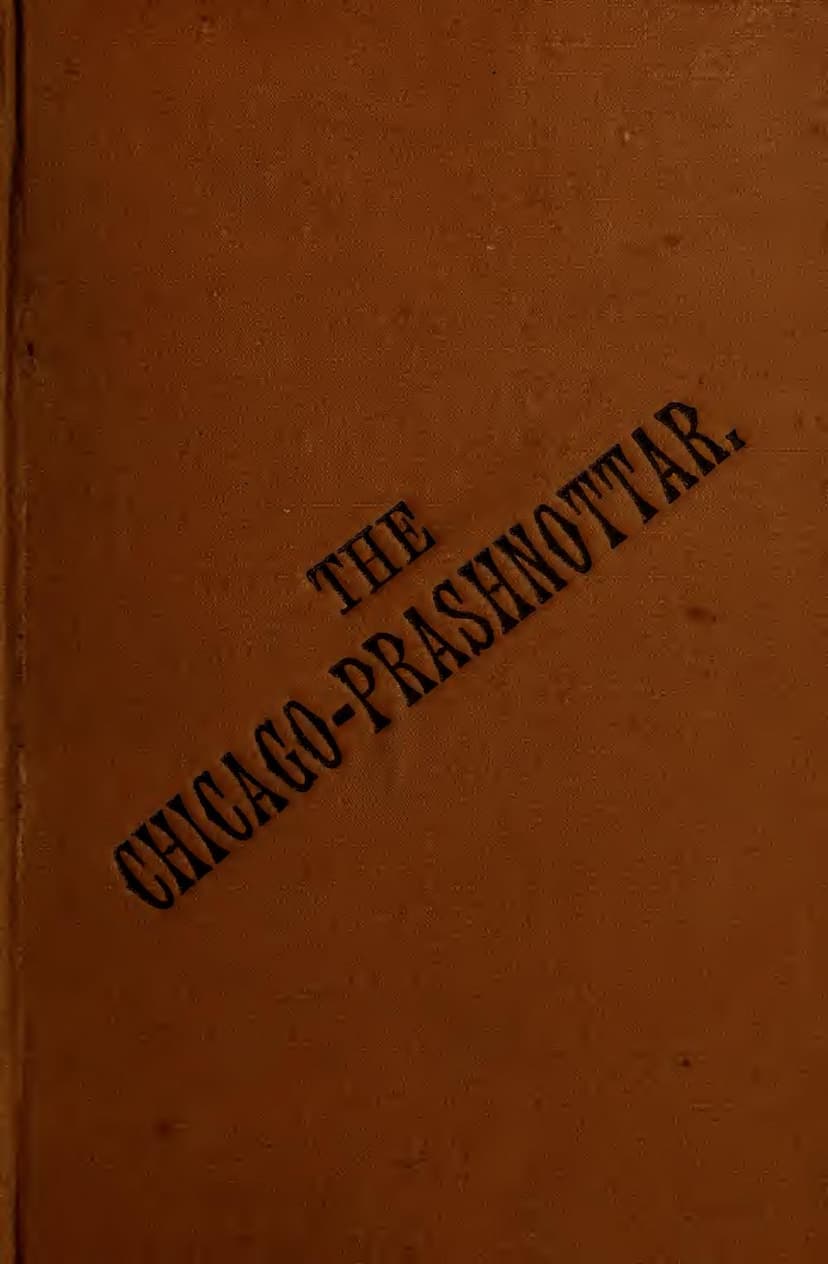Chicago Prashnottar
Added to library: September 1, 2025

Summary
This document is the English translation of the "Chicago Prashnottar" (Questions and Answers on Jainism), originally authored by Mahamuni Shrimat Vijayanandsuri, popularly known as Shri Atmaramji. The book was translated and published by Shri Atmanand Jain Pustak Pracharak Mandal, Agra, in 1918, with the intention of making the eternal truths of Jainism accessible to the Western world, particularly in response to the interest generated by the Parliament of Religions held in Chicago in 1893.
The book is structured as a series of questions and answers addressing core tenets of Jainism, often in dialogue with other religious perspectives, particularly those prevalent in Western thought at the time. The introduction provides a biographical sketch of the author, highlighting his spiritual journey, his prolific writing, his extensive travels for the propagation of Jainism, and his significant influence in converting many to the faith and establishing educational institutions. It also mentions his inability to attend the Chicago Parliament personally but his role in sending Mr. Virchand Raghavji Gandhi as a representative.
The "Chicago Prashnottar" then delves into various theological and philosophical questions, aiming to explain Jainism's unique perspectives. Key themes and questions explored include:
-
The Nature of God (Ishvara): The text extensively debates the concept of God, particularly questioning the idea of a creator God. It challenges the logical and scriptural basis for God as a creator and sustainer of the universe. The Jain perspective presented is that the universe is eternal, without a beginning or end, and operates according to inherent laws and the principles of karma. The concept of a personal God, an omniscient, omnipotent creator, is critiqued through a series of arguments, exposing perceived inconsistencies and contradictions. The Jain belief in God is presented as the perfected souls (Arhats and Siddhas) who have attained liberation and possess infinite knowledge and bliss, but do not intervene in the affairs of the universe.
-
Creation and the Universe: The book argues against the notion of a universe created by a divine being. Instead, it posits that the universe is a result of the combination of matter and spirit, governed by natural laws and the principle of karma. The Jain belief in the eternity of souls and matter is emphasized.
-
Karma and Rebirth: The text explains the Jain concept of karma, where actions (karma) are the driving force behind the cycle of birth, death, and rebirth. It clarifies how actions influence an individual's future lives and experiences, shaping their destiny.
-
The Soul: The nature and existence of the soul are discussed, refuting materialistic philosophies that deny its existence or equate consciousness with material forces. The concept of the soul's inherent potential to achieve liberation and divinity is highlighted.
-
Jain Principles and Practices: The book touches upon Jain ethics, the duties of householders and ascetics, the importance of virtues like non-violence, truthfulness, and self-control. It also explains the process of worship and the path to spiritual purification.
-
Comparison with Other Religions: Throughout the Q&A, the author often contrasts Jain doctrines with those of other religions, such as Hinduism (Vedic, Sankhya, Nyaya, Vedanta), Buddhism, Christianity, and Islam. This comparison is used to highlight what the author perceives as the superiority and logical coherence of the Jain perspective.
-
Critique of Other Religions: The book critically examines various religious beliefs, particularly those related to a creator God, divine incarnations, and scriptural interpretations, pointing out perceived flaws and inconsistencies.
The "Chicago Prashnottar" aims to be a comprehensive guide to Jain philosophy for a Western audience, providing reasoned arguments and detailed explanations to elucidate its complex concepts and refute opposing viewpoints. The extensive errata at the end indicates the meticulous effort made to ensure accuracy in this translation.